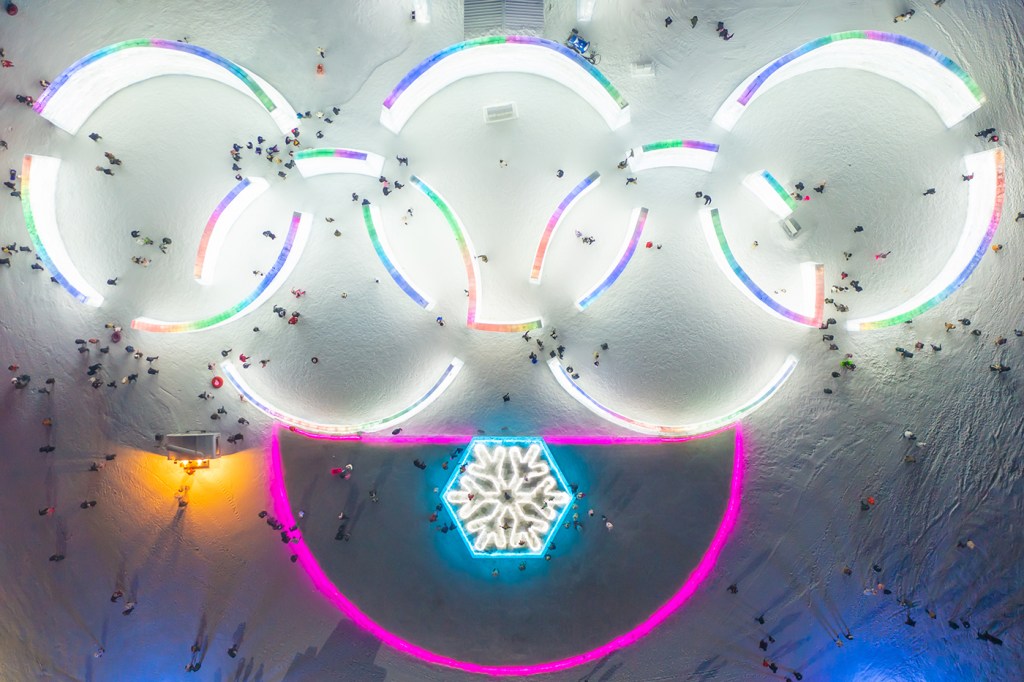China’s response to a diplomatic boycott of the Olympics: Meh

Beijing didn’t exactly mince words when Australia, citing China’s human rights record, decided to follow the United States’ lead in not sending high-level officials to next month’s Winter Olympic Games.
“No one would care whether they come or not,” Chinese Foreign Ministry spokesman Wang Wenbin recently told reporters at a press briefing. “The Winter Olympic Games is not a stage for political posturing.”
Such blunt language from the host nation is not surprising given how far China has come since it last hosted the Olympics in summer 2008, says Xuechen Chen, a professor of politics and international relations at NCH at Northeastern in London. Back then, China wanted to be recognized as one of the most important players in the world, Chen says.

China has been fairly adamant that there is no wrongdoing in Xinjiang or elsewhere, says political science professor Julie Garey, left. Xuechen Chen, right, who teaches international relations, says China no longer seeks nor needs external recognition to prove that it is a great power, unlike in 2008 when it hosted the Summer Games. Courtesy Photos
But now, with the eyes of the sporting world focused on the buildup to the Feb. 4-20 Winter Games, China no longer seeks nor needs external recognition to prove that it is a great power, says Chen.
“That partly explains Beijing’s reaction [to the diplomatic boycott] was essentially, ‘We don’t really care and it’s not a big problem for us,’” she says.
The White House, which sent first lady Jill Biden to the Tokyo Summer Olympics in 2021, won’t be flying any dignitaries to Beijing in light of “ongoing genocide and crimes against humanity in Xinjiang and other human-rights abuses,” spokeswoman Jen Psaki told reporters. “The president felt that we could not proceed with business as usual and send a diplomatic delegation to the Olympics.”
The United Kingdom, Canada, and other U.S. allies quickly followed suit. But most governments from the 90 countries participating in the Beijing games have decided not to join, International Olympic Committee President Thomas Bach said.
The decision has no bearing on the athletes themselves, who will compete as usual. But withholding dignitaries from the games is largely symbolic and unlikely to spur any change in China, says Chen.
“I’m a bit pessimistic,” she says.
What could move the needle?
If the United States were to bring more than just a handful of countries into the fold, or call for a full-on boycott, similar to the U.S. action in 1980 when American athletes sat out the Moscow games, that might get Beijing’s attention, Chen says, but that latter move is highly unlikely to happen.
Were more nations to sign on to a diplomatic snub of China, they would be states that identify with U.S. positions on democratic governance and human rights, says political science professor Julie Garey, who specializes in U.S. foreign policy.
“For some, it will also be about trying to persuade Chinese officials, but most are skeptical of the diplomatic boycott by itself having a meaningful impact on China,” she says.
The White House appears to acknowledge as much. Still, Garey adds, those in the administration who are supportive of the effort see potential benefits. They include the hope that athletes will use their platforms to speak out against China—a form of “celebrity diplomacy.”
It could also be seen as sending a message to the international community that, at least from a political standpoint, the Biden administration prioritizes human rights. And, Garey adds, it could lay the groundwork for justifying the continued application of tariffs initiated under former president Donald Trump.
It is very unlikely, however, that the U.S. would go so far as to take military action, says Garey.
“A war between the U.S. and China would be foolish and both sides know it,” she says. “For me, the U.S.’s [diplomatic boycott] actions are insufficient, but since most other actions against China have failed, and since I am cognizant of what’s at stake, I’m not sure what else the U.S. could do without risking a great deal. Not in terms of trade or diplomacy, but in terms of the human costs of war.”
What do the athletes themselves think about the mixing of politics and sports?
If they’re anything like Madison Mailey, a Northeastern alum who won Olympic gold for Canada in women’s rowing at the Tokyo games in 2021, they’d just as soon focus on competing and leave the politics out of it.
“I am closely following the stories surrounding human-rights issues in China and believe that the Olympics could draw global attention to these issues and start change-worthy conversations,” she says. “However, I try to focus on the athletes competing in these games and supporting them as much as possible.”
For media inquiries, please contact media@northeastern.edu.





